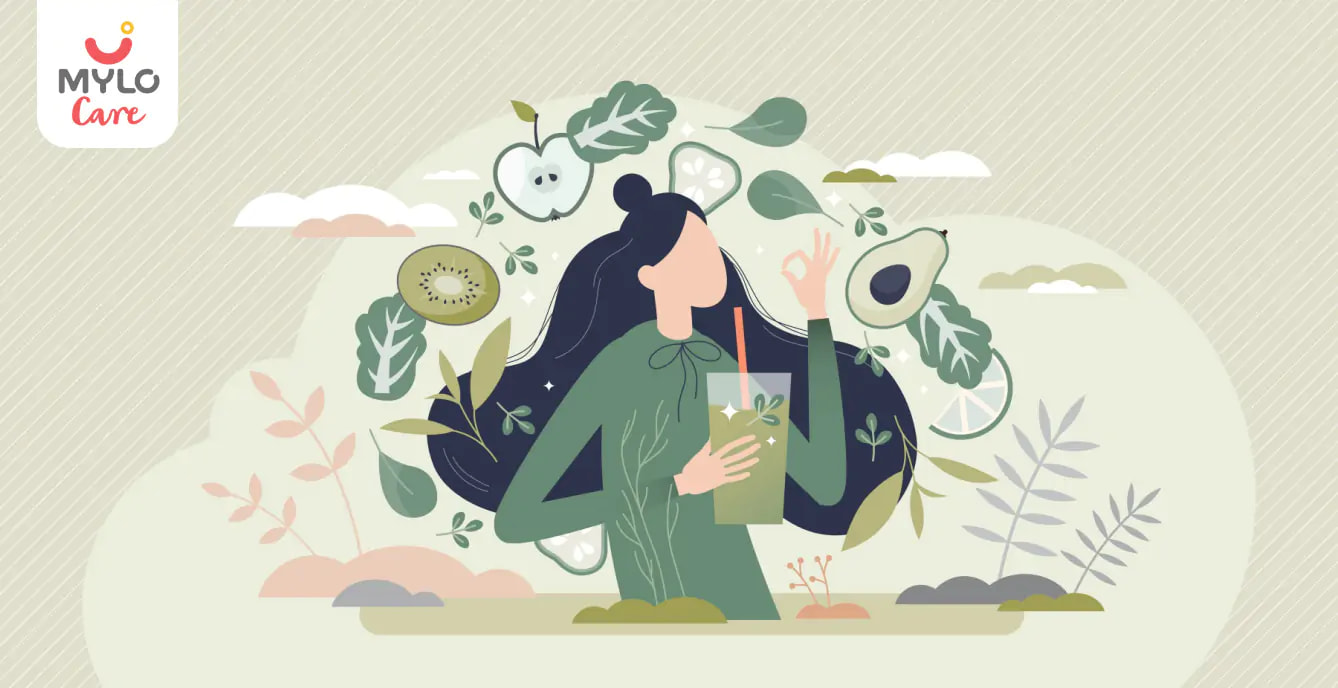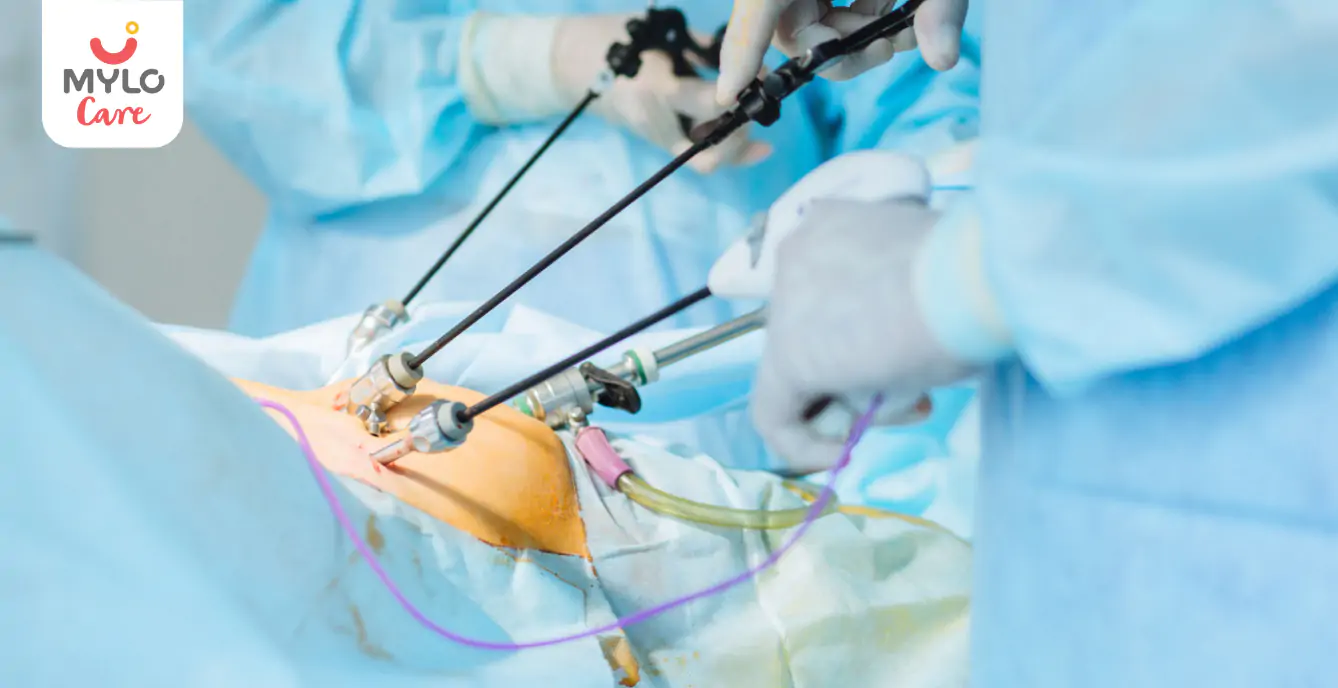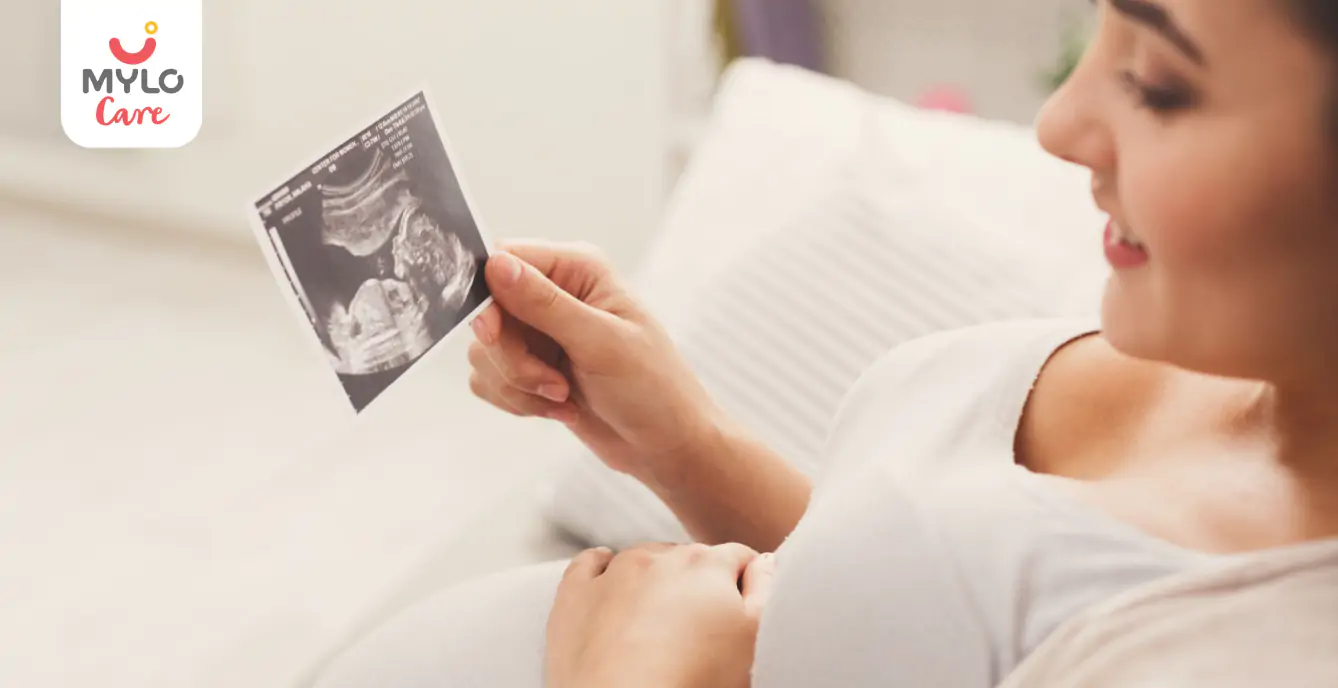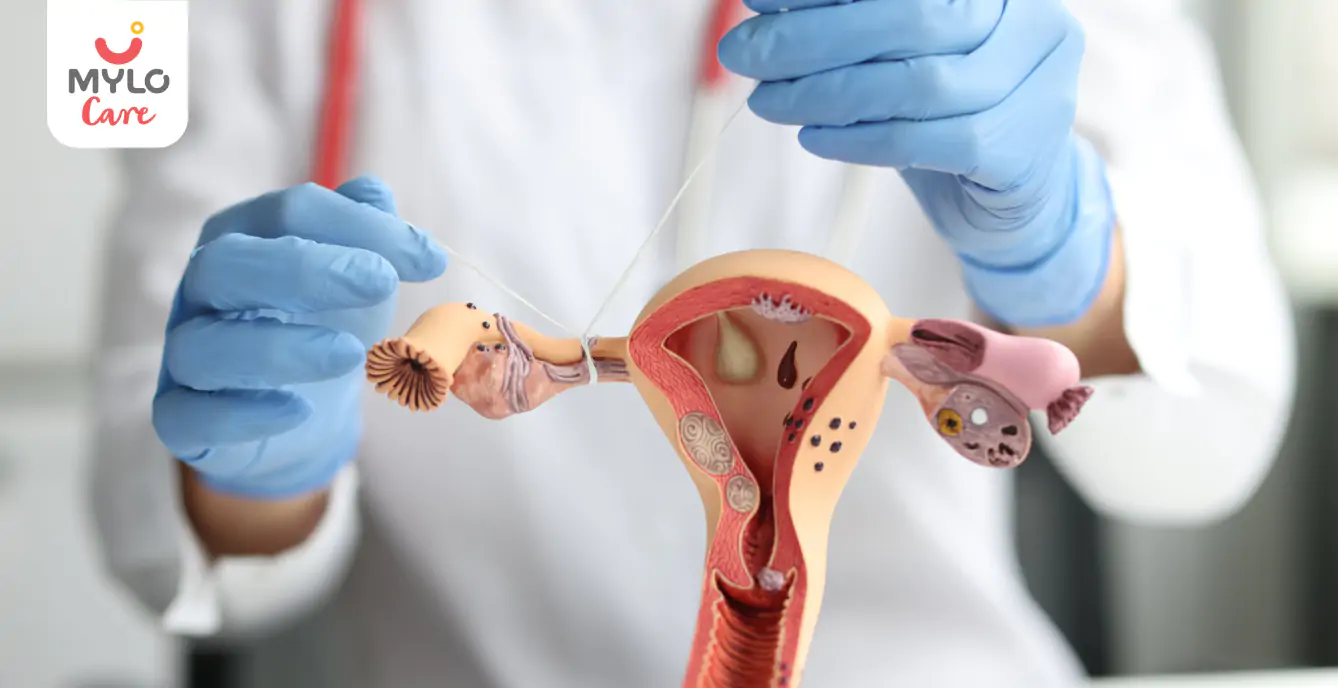Home

PCOS & PCOD

PCOD Cure: The Ultimate Guide to Managing PCOD at Home
In this Article

PCOS & PCOD
PCOD Cure: The Ultimate Guide to Managing PCOD at Home
Updated on 16 February 2024
Mehak was putting on weight and was also dealing with regular breakouts in the skin. She was often irritated and even complained that her periods were not regular. She was constantly seeking answers to questions like how to cure PCOD problem permanently. Fortunately, she met an Ayurvedic physician who believed in holistic healing and gave her a PCOD diet chart for weight loss. The doctor also suggested yoga poses for PCOD and home remedies for PCOD.
So, let’s join Mehak as she spills the details of her journey managing PCOD at home.
How to Cure PCOD Problem Permanently?
Women suffering from PCOD often ask can PCOD be cured permanently. There is currently no established permanent cure, but fortunately, various methods exist to manage PCOD symptoms effectively and prevent their worsening. These include customised diet charts, Yoga asanas and exercises, Ayurvedic and homoeopathic medicines, natural remedies and supplements that help manage PCOD symptoms.
You may also like: Polycystic Ovarian Disease (PCOD): Navigating Causes, Effects, and Coping Strategies
PCOD Diet Chart
- PCOD diet plan focuses on foods with low glycemic index, which means these foods are digested slowly and don’t result in immediate fluctuations in insulin levels. Examples of food with low glycemic index are whole grains, nuts, seeds, legumes and unprocessed carbs.
- Next, the focus should be to include anti-inflammatory food items like green leafy vegetables, extra virgin olive oil, and berries to reduce symptoms like fatigue.
- PCOD diet chart for weight loss must not include refined carbohydrates like those present in cakes or sugar-based desserts, fried food, and the foods that have high amounts of sugar to combat insulin resistance.
- Additionally, replacing carbonated, sugar drinks and milk teas with herbal teas like PCOS/PCOD Tea can be a great way to combat common PCOD symptoms. These herbal teas should include ingredients like cinnamon, chamomile, fennel, fenugreek, Shatavari, Manjishtha, Amla, Shankhpushpi etc.
7-day PCOD Diet Chart
1. Breakfast
Day 1: 2-3 Idlis with Sambhar
Day 2: Multi-grain bread sandwich with cucumber, tomatoes, and cabbage
Day 3: Milk + Cornflakes
Day 4: Vegetable Poha
Day 5: Vegetable Daliya
Day 6: 1 Methi Parantha with green chutney
Day 7: Vegetable Oats Upma
2. Mid-day Snack
Day 1: Any Fruit (Except banana)
Day 2: 1 cup low-fat curd
Day 3: 1 glass low-fat buttermilk
Day 4: 1 glass lemon water
Day 5: 1 low-fat yogurt
Day 6: 1 bowl salad
Day 7: 1 glass fresh fruit juice
3. Lunch
Day 1: 2 chappati + 1 cup curry + ½ cup low-fat curd
Day 2: Palak chappati + ½ cup curd + ½ cup potato and peas curry
Day 3: ¾ plate vegetable puloa with curd
Day 4: 2 chappati + bhindi + ½ cup dal
Day 5: Steamed rice + kidney beans/ fish curry
Day 6: 1 veg uttapam with chutney and sambhar
Day 7: 2 chapatti + dal
4. Evening snack
Day 1: Black horse gram salad + PCOS/PCOD Tea
Day 2: Chickpea salad + PCOS/PCOD Tea
Day 3: PCOS/PCOD Tea
Day 4: Sprout salad + PCOS/PCOD Tea
Day 5: Fresh fruits + PCOS/PCOD Tea
Day 6: Spinach and other veggies soup + PCOS/PCOD Tea
Day 7: Cucumber and tomato salad + PCOS/PCOD Tea
5. Dinner
Day 1: Vegetable Khichdi
Day 2: 1 chapati + Palak paneer sabzi
Day 3: Rice + Dal
Day 4: Chapati + Soya chunks curry
Day 5: Vegetable oats upma
Day 6: Dosa + Sambhar
Day 7: Chapati + Paneer
It's important to note that this is a sample diet chart for PCOD and women are recommended to follow a customised diet chart that can target the specific symptoms they might be experiencing.
Home Remedies for PCOD
Here is a list of natural remedies that you can inculcate in your lifestyle to alleviate PCOD symptoms:
1. Cinnamon tea
Add a small piece of cinnamon to warm water/green tea/ regular tea once in a day
2. Fenugreek seeds
Soak ¼ tsf fenugreek seeds in a glass of water overnight and strain it and drink in the morning empty stomach. This remedy helps to restore hormonal balance.
3. Turmeric Milk / Golden Milk
Turmeric is rich in antioxidants and therefore adding it to your glass of milk can help to boost your immunity and also have anti-inflammatory properties.
You may also like: PCOD vs. PCOS: The Ultimate Guide to Understanding the Key Differences
Dietary Supplements for PCOD
Besides following a diet chart and incorporating natural remedies for PCOD, women may also benefit greatly from non-hormonal, dietary supplements to manage PCOD. One such supplement that you may consider adding to your PCOD cure arsenal is inositols, a type of sugar alcohol that naturally occurs in foods. It can be found in two forms: myo-inositol and D-chiro-inositol, which have both proven beneficial for women with PCOS/PCOD.
Myo-inositol has especially been found to improve insulin sensitivity, restoring menstrual regularity, reducing androgen levels and improving fertility. You can also consider Mylo's chewable Myo-inositol tablets, which are fortified with Quatre Folic and Vitamin D and can help promote hormonal balance and overcome common as well as specific PCOS/PCOD challenges.
Yoga Poses for PCOD
Yoga can be beneficial for managing PCOD as it helps reduce stress, improve hormonal balance, and enhance overall well-being. Here are some yoga poses that may be helpful for individuals with PCOD:
1. Bhujangasana (Cobra Pose)

This pose helps stimulate the ovaries and can help regulate hormonal imbalances.
2. Dhanurasana (Bow Pose)

The Bow Pose stretches the entire body, including the abdomen and pelvic region, which can be beneficial for PCOD.
3. Supta Baddha Konasana (Reclining Bound Angle Pose)

This pose helps open up the pelvic region and promotes relaxation, which can be helpful for PCOD-related symptoms.
4. Balasana (Child's Pose)

A restorative pose that helps relax the body and mind, reducing stress levels.
5. Janu Sirsasana (Head-to-Knee Forward Bend)

This pose helps stretch the hamstrings and stimulate the ovaries.
6. Setu Bandhasana (Bridge Pose)

This pose stretches the spine and opens up the chest and hip flexors.
7. Viparita Karani (Legs-up-the-Wall Pose)

A gentle inversion that can help improve blood flow to the pelvic region and reduce stress.
Ayurvedic Medicine for PCOD
Ayurveda, the traditional system of medicine from India, offers holistic approaches to manage PCOD (Polycystic Ovarian Disease) by addressing the root causes and imbalances in the body.
Here are some common Ayurvedic approaches and herbs used for managing PCOD:
1. Shatavari (Asparagus racemosus)
This herb is known to balance hormones and support female reproductive health. You can also use Mylo’s Shatavari powder to suppress PCOD.
2. Ashoka (Saraca indica)
It is believed to have a positive effect on the uterus and hormonal imbalances. You can consume 10 ml to 20 ml of Ashokarishta syrup about twice or thrice a day.
3. Lodhra (Symplocos racemosa)
Lodhra helps in regulating the menstrual cycle and reducing excessive bleeding. It can be consumed in various forms, including water decoction, powdered form, or paste twice a day after meals.
Mylo offers herbal solutions to combat the symptoms associated with PCOD like weight gain, acne, irregular periods, and mood swings. Mylo’s PCOD tea, which contains potent ingredients like cinnamon, chamomile, fennel, fenugreek, Shatavari, Manjishtha, Amla, Shankhpushpi can also help you manage symptoms of PCOD.
Homeopathic Medicine for PCOD
Homeopathy offers individualized remedies based on the person's symptoms and constitution for PCOD cure, Homeopathic treatments aim to stimulate the body's healing mechanisms and restore balance.
Here are some common homeopathic medicines that are used for PCOD management:
1. Pulsatilla
This remedy is often prescribed for PCOD with irregular menstrual cycles, delayed or scanty periods, and emotional sensitivity.
2. Sepia
Sepia is recommended for PCOD with irregular periods, bearing down sensations in the pelvis, and even related infertility.
3. Thuja Occidentalis
Thuja is prescribed for PCOD with hormonal imbalances and skin issues like acne or oily skin.
Consultation with a qualified homeopath is essential for personalized treatment. Homeopathic remedies are prescribed based on an individual's specific symptoms and overall health.
Final Thoughts
In conclusion, Polycystic Ovarian Disease is a chronic hormonal disorder that currently does not have a known permanent cure. The answer to the questions can PCOD be cure permanently and how to cure PCOD problem permanently is that it can be effectively managed through various approaches, including a well-balanced diet, lifestyle changes, and medical interventions. Natural remedies, yoga, Ayurvedic, and homoeopathic medicine for PCOD may provide supportive measures to manage PCOD symptoms, but they should be used in conjunction with medical guidance and not as standalone solutions.
References
1. Arentz, S., Abbott, J. A., Smith, C. A., & Bensoussan, A. (2014). Herbal medicine for the management of polycystic ovary syndrome (PCOS) and associated oligo/amenorrhoea and hyperandrogenism; a review of the laboratory evidence for effects with corroborative clinical findings. BMC Complementary and Alternative Medicine
2. Lakshmi, J. N., Babu, A. N., Kiran, S. S. M., Nori, L. P., Hassan, N., Ashames, A., Bhandare, R. R., & Shaik, A. B. (2023). Herbs as a Source for the Treatment of Polycystic Ovarian Syndrome: A Systematic Review. BioTech
Tags
PCOD Cure: The Ultimate Guide to Managing PCOD at Home in Telugu, PCOD Cure: The Ultimate Guide to Managing PCOD at Home in Tamil



Written by
Madhavi Gupta
Dr. Madhavi Gupta is an accomplished Ayurvedic doctor specializing in Medical content writing with an experience of over 10 years.
Read MoreGet baby's diet chart, and growth tips

Related Articles
Related Questions
Hello frnds..still no pain...doctor said head fix nhi hua hai..bt vagina me pain hai aur back pain bhi... anyone having same issues??

Kon kon c chije aisi hai jo pregnancy mei gas acidity jalan karti hain... Koi btayega plz bcz mujhe aksar khane ke baad hi samagh aata hai ki is chij se gas acidity jalan ho gyi hai. Please share your knowledge

I am 13 week pregnancy. Anyone having Storione-xt tablet. It better to have morning or night ???

Hlo to be moms....i hv a query...in my 9.5 wk i feel body joint pain like in ankle, knee, wrist, shoulder, toes....pain intensity is high...i cnt sleep....what should i do pls help....cn i cosult my doc.

Influenza and boostrix injection kisiko laga hai kya 8 month pregnancy me and q lagta hai ye plz reply me

RECENTLY PUBLISHED ARTICLES
our most recent articles

Medical Procedures
Laparoscopic Ovarian Drilling: A Safe and Effective Solution for PCOS-Related Infertility

Headaches
Headache During Pregnancy: The Ultimate Guide to Causes and Cures

Scans & Tests
Fetal Doppler Scan During Pregnancy: In which week should you get it done?

Sleep
How Long Should Naps Be While Pregnant?

Fertility Problems
Blocked Fallopian Tubes: How They Affect Your Chances of Conceiving

How Do You Notify Your Employer That You Are Pregnant?
- The Ultimate Guide to Consuming Tapioca During Pregnancy
- Braxton Hicks Contractions or Real Labor: How to Tell Them Apart?
- Top 10 Tips For The Third Trimester Of Your Pregnancy
- Maternity Leave 101: Rules, Benefits & Timings for Expectant Working Women
- The A-Z Guide to Identifying Summer Vegetables for Kids
- Christian Baby Girl Names That Stand the Test of Time
- The A-Z Guide on Purple Colour Fruits and Vegetables for Kids
- The A-Z Guide on Red Colour Fruits & Red Colour Vegetables for Kids
- The A-Z Guide on Yellow Fruits & Yellow Colour Vegetables for Kids
- Cervical Cancer: Causes, Symptoms & Prevention
- The A-Z Guide to Identifying Stem Vegetables for Kids
- Can Fetal Heartbeat Disappear and Reappear?
- The Ultimate Guide to Teaching Children 20 to 30 Tables
- GK Questions for Kids from Nursery to Class 6


AWARDS AND RECOGNITION

Mylo wins Forbes D2C Disruptor award

Mylo wins The Economic Times Promising Brands 2022
AS SEEN IN

- Mylo Care: Effective and science-backed personal care and wellness solutions for a joyful you.
- Mylo Baby: Science-backed, gentle and effective personal care & hygiene range for your little one.
- Mylo Community: Trusted and empathetic community of 10mn+ parents and experts.
Product Categories
baby carrier | baby soap | baby wipes | stretch marks cream | baby cream | baby shampoo | baby massage oil | baby hair oil | stretch marks oil | baby body wash | baby powder | baby lotion | diaper rash cream | newborn diapers | teether | baby kajal | baby diapers | cloth diapers |




